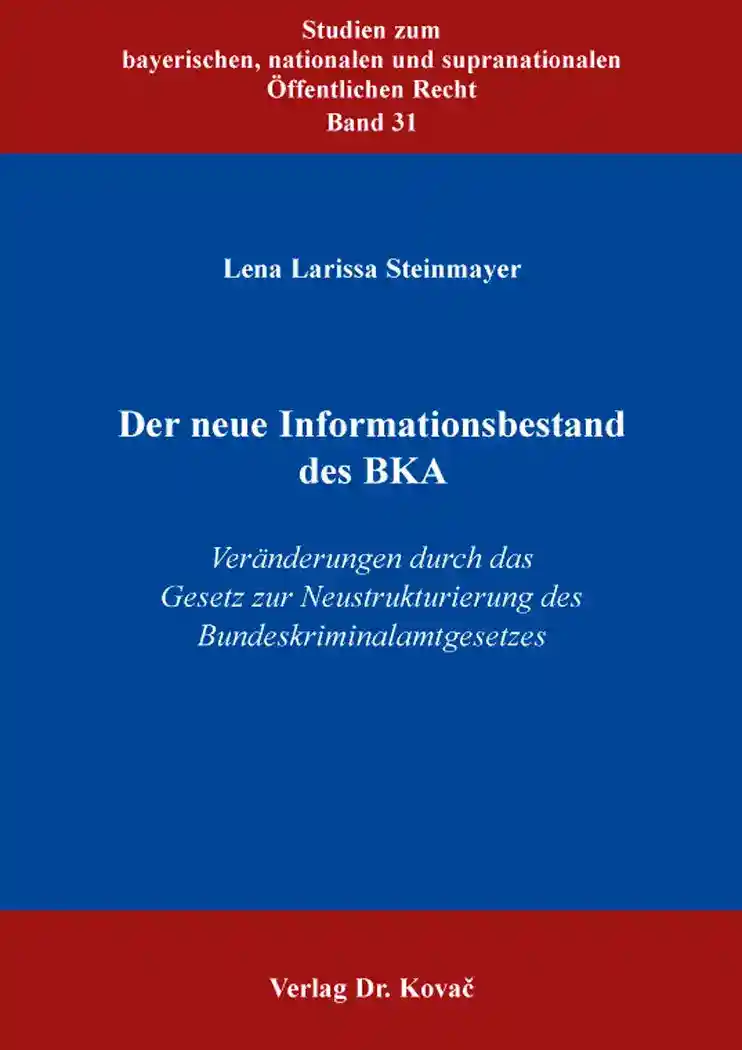Lena Larissa SteinmayerDer neue Informationsbestand des BKA
Veränderungen durch das Gesetz zur Neustrukturierung des Bundeskriminalamtgesetzes
Studien zum bayerischen, nationalen und supranationalen Öffentlichen Recht, volume 31
Hamburg 2021, 320 pages
ISBN 978-3-339-12106-6 (print)
ISBN 978-3-339-12107-3 (eBook)
About this book deutschenglish
With the law to amend the Federal Criminal Police Office Act (Bundeskriminalamtgesetz, BKAG), the German legislator has comprehensively reformed BKA’s (Bundeskriminalamt, BKA) data storage. The law is the basis for converting BKA’s numerous vertically separated files into a uniform information network.
The revision of the BKAG was necessary due to the requirements set forth by the Federal Constitutional Court in its 20th April, 2016 ruling on the BKAG (1 BvR 966/09, 1 BvR 1140/09) as well as the EU Directive 2016/680 of the European Parliament and Council of 27th April, 2016. However, the German legislator has gone beyond the immediate need for adaptation by extensively reorganising BKA’s information storage.
The present thesis examines difficulties of this reorganisation with regard to constitutional and European law. It specifically deals with the far-reaching data matching and linking processes that are not regulated by law. Further, this dissertation explores the extensive consequences for the German police authorities’ information network. The law strengthens the BKA as the “data house” of the German police authorities and entitles it to provide a multi-client capable information system for federal state-level police authorities. Thereby, however, the law also generates new obligations for the federal states to fulfil the requirements for participation in BKA’s collaborative information network.
Moreover, this thesis considers the implementation of the hypothetical data re-collection principle (Grundsatz der hypothetischen Datenneuerhebung). In its April, 2016 ruling, the Federal Constitutional Court created this principle, which must now be complied with in further processing of personal data for purposes other than the initial purpose of the data collection. The legislator establishes this principle as the central principle of data processing in the new BKAG. The legislator exceeds the Federal Constitutional Court requirements by extending the scope of application to data from all data collection measures. This entails a comprehensive effort for the BKA to label all processed data, something which is not directly required by the Federal Constitutional Court decision.
